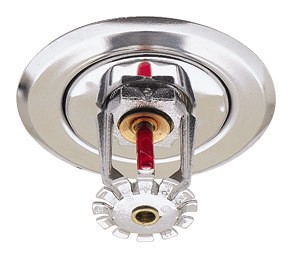Fire Sprinkler Rules, Regulations and Laws
Thursday
 Of the many questions we get at ConstructionDeal.com, one of the most common is 'Why are sprinklers required in some areas and not in others?" What is the reason for all the various rules, regulations, and laws? We decided to check with the American Fire Sprinkler Association:
Of the many questions we get at ConstructionDeal.com, one of the most common is 'Why are sprinklers required in some areas and not in others?" What is the reason for all the various rules, regulations, and laws? We decided to check with the American Fire Sprinkler Association:According to the AFSA, "Fire sprinkler systems are installed in accordance with consensus standards developed through the National Fire Protection Association (NFPA.)
These standards are very specific in defining how sprinklers are to be installed in different types of occupancies and different hazard classifications.
The three primary standards that define the installation requirements are NFPA-13 (Installation of Sprinkler Systems); NFPA-13R (Installation of Sprinkler Systems in Residential Occupancies Up to and Including Four Stories in Height); and NFPA-13D (Installation of Sprinkler Systems in One and Two-Family Dwellings and Manufactured Homes.)
The standards adopted by NFPA represent the best recommended practices, but the standards by themselves are not 'law.' Development of the consensus is a dynamic process and the standard is changed to reflect new technologies, science, and experience. Every three years a new version of the standard is issued that contains changes and updates.
The requirements for the installation of fire sprinklers are adopted as law by state or local jurisdictions as a part of their building code or local ordinance. At times jurisdictions may vary some of the requirements contained in the NFPA documents. Differences in requirements will vary from city to city based on local changes made to the NFPA standards, or the year of the standard adopted by the local jurisdiction.
For example, if one city adopts the 1999 NFPA 13 standard, and another city adopts the 2002 issue of the same standard, there will be differences."
If your city requires fire sprinklers in your commercial or residential building, you can use Construction Deal to help you find a quality sprinkler installation company. It's a free service for you. You'll be matched with several installation companies and their multiple bids means you'll have the best price to choose from.
RELATED POSTS:
Do All Sprinklers Come On At Once?
Water Mist Fire Suppression Systems
Sprinklers: Adding Value and Saving Money



